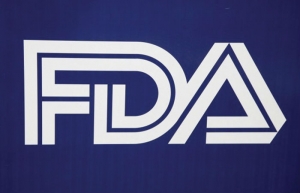Action Alert on FDA Dietary Supplements Regulations
October 4, 2016
Slow the FDA’s Process on “New Dietary Ingredients”
by John Weeks, Publisher/Editor of The Integrator Blog News and Reports Five years ago, an alliance of the top five natural products industry organizations raised question about an action from the USA Food and Drug Administration (FDA). One of them, the Council for Responsible Nutrition said that the agency’s proposed plan for regulating New Dietary Ingredients (NDIs) consists of a “variety of maneuvers” that forces manufacturers to meet standards “that Congress and the courts clearly did not intend to be applied to dietary supplements.” In August, the FDA “doubled-down” on their original guidance, which may “represent a misinterpretation of the intent of DSHEA and its congressional sponsors” according to Loren Israelsen, current President of United Natural Products Association and widely known as one of the original architects of DSHEA. His organization has estimated that the “economic cost to industry could be billions of dollars”. A campaign is mounting among health professionals and their organizations to respond to the FDA’s open comment period – now ending October 11 – to at least make certain that the agency extends its comment period for 120 days.
Five years ago, an alliance of the top five natural products industry organizations raised question about an action from the USA Food and Drug Administration (FDA). One of them, the Council for Responsible Nutrition said that the agency’s proposed plan for regulating New Dietary Ingredients (NDIs) consists of a “variety of maneuvers” that forces manufacturers to meet standards “that Congress and the courts clearly did not intend to be applied to dietary supplements.” In August, the FDA “doubled-down” on their original guidance, which may “represent a misinterpretation of the intent of DSHEA and its congressional sponsors” according to Loren Israelsen, current President of United Natural Products Association and widely known as one of the original architects of DSHEA. His organization has estimated that the “economic cost to industry could be billions of dollars”. A campaign is mounting among health professionals and their organizations to respond to the FDA’s open comment period – now ending October 11 – to at least make certain that the agency extends its comment period for 120 days.  At issue is something called “Dietary Supplements: New Dietary Ingredient Notifications and Related Issues: Guidance for Industry.” The Docket Number is FDA-2011-D-0376. Understanding the complex guidance poses challenges for anyone not intimately involved with product manufacturing and sourcing processes. Natural products expert Michael D. Levin (pictured right) of Health Business Strategies – an individual with executive experience in pharmaceutical, medical devices and natural products firms – agrees that the language in multiple passages could foster what he believes are significant, detrimental changes. One example that Levin shared is the following: if the guidance were adopted, he believes that any change in the way manufacturing is engaged could trigger new dietary ingredient (NDI) status. Because of the routine changes in manufacturing processes, this change “will essentially put most botanical extracts into NDI territory.” If so, according to Levin, this would add substantially to regulatory burden and cost.
At issue is something called “Dietary Supplements: New Dietary Ingredient Notifications and Related Issues: Guidance for Industry.” The Docket Number is FDA-2011-D-0376. Understanding the complex guidance poses challenges for anyone not intimately involved with product manufacturing and sourcing processes. Natural products expert Michael D. Levin (pictured right) of Health Business Strategies – an individual with executive experience in pharmaceutical, medical devices and natural products firms – agrees that the language in multiple passages could foster what he believes are significant, detrimental changes. One example that Levin shared is the following: if the guidance were adopted, he believes that any change in the way manufacturing is engaged could trigger new dietary ingredient (NDI) status. Because of the routine changes in manufacturing processes, this change “will essentially put most botanical extracts into NDI territory.” If so, according to Levin, this would add substantially to regulatory burden and cost.  Levin’s view was strongly supported by the top five natural products industry organizations, whose logos are visible to the left. Their 2011 statements noted at the top of this article read, in part: “Collectively the draft FDA Guidance can be viewed as a variety of maneuvers by the FDA to re-characterize as many dietary supplements as possible as [New Dietary Ingredients] and then propose a standard of proof for their safety that few manufacturers would be able to meet; one that Congress and the courts clearly did not intend to be applied to dietary supplements.” The five organizations are the Council for Responsible Nutrition, American Herbal Products Association (AHPA), Consumer Healthcare Products Association (CHPA), the Natural Products Association (NPA), and the United Natural Products Alliance (UNPA). Levin has worked with functional medicine and naturopathic medicine pioneer Joe Pizzorno, ND, editor-in-chief of Integrative Medicine: A Clinician’s Journal, this writer, and others, to stir up engagement of integrative healthcare practitioners and their professional organizations on this issue. Step one in his mind is to slow the train. He urges practitioner to respond to the FDA by requesting a 120-day extension to allow a regulation of this importance to be thoroughly vetted. According to Levin, “medical doctors, pharmacists, naturopathic doctors and other healthcare practitioners should review this guidance and consider how it may impact their ability to prescribe safe nutritional interventions to help their patients.” A draft letter of request for an extension is affixed below. Comment: Charges like these against a proposal of the FDA have propelled many Paul Revere rides through the alternative and integrative medicine community. One reasonably wonders with blasts against the FDA if it is “wolf” that is being cried. Or at least the reasonable concern about howling from any industry when it comes to regulation: Are issues being blown out of proportion in order to protect an industry that perhaps should be paying more attention to quality? I’d been tracking industry concerns with the FDA’s NDI proposal from a distance prior to the e-mail from Levin. My best assessment: this is not “wolf” this time. Bottom line: what loss can there be to slowing the process and granting a 120-day extension to fully vet the guidance. The draft request provided by Levin is below. _______________________________
Levin’s view was strongly supported by the top five natural products industry organizations, whose logos are visible to the left. Their 2011 statements noted at the top of this article read, in part: “Collectively the draft FDA Guidance can be viewed as a variety of maneuvers by the FDA to re-characterize as many dietary supplements as possible as [New Dietary Ingredients] and then propose a standard of proof for their safety that few manufacturers would be able to meet; one that Congress and the courts clearly did not intend to be applied to dietary supplements.” The five organizations are the Council for Responsible Nutrition, American Herbal Products Association (AHPA), Consumer Healthcare Products Association (CHPA), the Natural Products Association (NPA), and the United Natural Products Alliance (UNPA). Levin has worked with functional medicine and naturopathic medicine pioneer Joe Pizzorno, ND, editor-in-chief of Integrative Medicine: A Clinician’s Journal, this writer, and others, to stir up engagement of integrative healthcare practitioners and their professional organizations on this issue. Step one in his mind is to slow the train. He urges practitioner to respond to the FDA by requesting a 120-day extension to allow a regulation of this importance to be thoroughly vetted. According to Levin, “medical doctors, pharmacists, naturopathic doctors and other healthcare practitioners should review this guidance and consider how it may impact their ability to prescribe safe nutritional interventions to help their patients.” A draft letter of request for an extension is affixed below. Comment: Charges like these against a proposal of the FDA have propelled many Paul Revere rides through the alternative and integrative medicine community. One reasonably wonders with blasts against the FDA if it is “wolf” that is being cried. Or at least the reasonable concern about howling from any industry when it comes to regulation: Are issues being blown out of proportion in order to protect an industry that perhaps should be paying more attention to quality? I’d been tracking industry concerns with the FDA’s NDI proposal from a distance prior to the e-mail from Levin. My best assessment: this is not “wolf” this time. Bottom line: what loss can there be to slowing the process and granting a 120-day extension to fully vet the guidance. The draft request provided by Levin is below. _______________________________ 



















SHARE